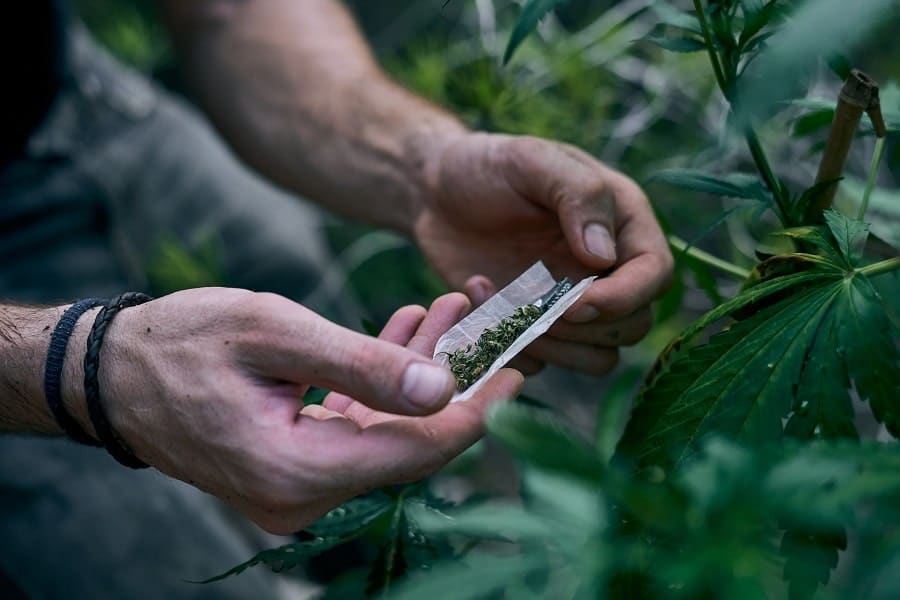Federal Legalization of Cannabis: Updates on the Law
Embarking on the intricate and ever-evolving debate on federal marijuana legalization reveals a multifaceted journey. To comprehend the present landscape, it is imperative to explore the historical milestones shaping the movement at the state level. By tracing the trajectory of cannabis prohibition, we unravel the forces propelling the call for federal marijuana legalization.
Historical Context: Milestones in State-Level Marijuana Legalization
The story of cannabis legalization unfolds with states taking strides, from California pioneering medical cannabis legalization in 1996 to recent measures in states like Colorado and Washington embracing recreational use. These milestones not only reflect evolving public sentiment but also set the stage for increased advocacy for federal marijuana legalization.
Current State of Federal Marijuana Legalization
Presently, the United States grapples with a complex patchwork of cannabis laws—some states fully embracing cannabis, others permitting it for medicinal purposes, and a few adhering to stringent prohibition. This diverse legal landscape poses challenges for individuals and businesses navigating the intricacies of cannabis legislation.

Let’s take a look at some examples:
1. California:
- California cannabis laws have allowed for the recreational use of cannabis since 2018.
- Various regulations govern the cannabis cultivation, distribution, and sale of cannabis.
2. Colorado:
- Colorado legalized recreational cannabis in 2012.
- The state has a well-established regulatory framework for both medical and recreational use.
3. Washington:
- Washington legalized recreational cannabis in 2012 as well.
- The state has a system of licensed dispensaries and regulations for cultivation and use.
4. Oregon:
- Oregon permits both medical and recreational cannabis use.
- The state has a robust system for cultivation, processing, and retail sales.
5. Alaska:
- Alaska legalized recreational cannabis in 2014.
- The state has regulations for cultivation, sale, and possession.
6. Nevada:
- Nevada allows both medical and recreational cannabis use.
- There are regulations for dispensaries, cultivation, and possession.
7. Massachusetts:
- Massachusetts legalized recreational cannabis in 2016.
- The state has established a framework for cultivation, distribution, and retail sales.
8. Illinois:
- Illinois legalized recreational cannabis in 2020.
- The state has regulations for cultivation, sale, and possession.
9. Michigan:
- Michigan allows both medical and recreational cannabis use.
- The state has established regulations for cultivation, distribution, and sales.
10. Vermont:
- Vermont legalized recreational cannabis in 2018.
- The state allows cultivation and possession of a limited amount for personal use.
11. Maine:
- Maine permits both medical and recreational cannabis use.
- There are regulations for cultivation, sale, and possession.
12. Arizona:
- Arizona legalized recreational cannabis in 2020.
- The state has regulations for cultivation, sale, and possession.
13. New York:
- New York legalized recreational cannabis in 2021.
- The state has regulations for cultivation, distribution, and sales.
These are just a few examples. However, cannabis laws can vary widely from state to state.

Cannabis Rescheduling Update: What Can it Give
Exploring avenues for change, policymakers examine the rescheduling of cannabis under the Controlled Substances Act. As a Schedule I substance, cannabis faces strict classification. Rescheduling could potentially unlock opportunities for research, medical applications, and a more nuanced regulatory framework.
Economic and Social Implications Associated with Federal Cannabis Legalization
The economic potential of federal legalization of cannabis cannot be overstated. With an increasing number of states embracing marijuana, the industry experiences rapid growth, generating employment opportunities and contributing to tax revenue. Recognizing the economic benefits becomes a driving force for lawmakers advocating for a regulated cannabis market.
Controversies and Clash Of Laws: Marijuana Federal Legalization and State-Regulated Laws
The scenario of federal marijuana legalization in the United States is a captivating and intricate interplay of laws. While many states have embraced the legalization of marijuana for either medical or recreational purposes, the federal government maintains its classification of it as illegal.
In California, for example, you can easily step into a Los Angeles cannabis dispensary, buy cannabis products, and use them without any legal concerns under state law. However, if you were to cross state borders or come under federal jurisdiction, you would be subject to federal laws that still label marijuana as a controlled substance.
This inconsistency arises because, on the federal level, marijuana continues to be categorized as a Schedule I substance, sharing the same classification as drugs such as heroin and LSD. This classification suggests that the government perceives it as having a high potential for abuse and no recognized medical utility, despite the differing perspectives adopted by numerous states.
As the push for federal marijuana legalization continues to gain momentum, discussions about reconciling these conflicting laws and bringing about federal reform become increasingly relevant. The tension between state and federal regulations underscores the intricate nature of marijuana federal legalization in the United States.
Public Health Considerations
Beyond economic impacts, the federal legalization of cannabis brings forth crucial public health considerations. Standardized regulations and oversight could ensure product safety, quality control, and responsible consumption. Moreover, marijuana federal legalization allows for more comprehensive research into the medicinal properties of cannabis, potentially unlocking new avenues for treatment.

Social Equity and Criminal Justice Reform
The societal impact of federal cannabis legalization extends to issues of social equity and criminal justice reform. The disproportionate impact of cannabis prohibition on marginalized communities has been a focal point in discussions. Federally legalizing cannabis provides an opportunity to address historical injustices, expunge criminal records, and foster a more equitable cannabis industry.
Legislative Initiatives: STATES Act and MORE Act
Efforts to bridge the gap between state and federal cannabis laws have materialized in legislative initiatives like the STATES Act and the MORE Act. These bills aim to reconcile the disparities, respecting state autonomy while providing a framework for federal oversight. The legislative landscape remains a critical arena in the push for federal cannabis legalization.
Where is Cannabis Legal?
Currently, 18 states and the District of Columbia permit recreational adult use of cannabis, and 37 states have enacted medical cannabis programs. Notably, each state’s laws differ on possession limits, distribution, and other regulatory aspects. Navigating this intricate map requires a nuanced understanding of the legal nuances in each jurisdiction.
Challenges and Hurdles Ahead
While the momentum for federal cannabis legalization grows, significant challenges and hurdles persist. Political gridlock, divergent opinions, and competing national priorities pose formidable obstacles. The delicate balance between state and federal authority adds complexity to the legislative process, requiring careful navigation.
Future Outlook to Federal Marijuana Legalization
Despite uncertainties, the trajectory points towards a potential future of federal marijuana legalization. The evolving landscape and shifting societal attitudes create an environment where the possibility of marijuana federal legalization becomes increasingly plausible. Continued advocacy, education, and public engagement will likely play pivotal roles in shaping this future.
The debate over federal cannabis legalization continues to capture national attention, fueling intense discussions. Grasping the historical context, understanding the current state of affairs, and envisioning potential implications are essential to staying informed about this dynamic issue. By keeping abreast of updates on federal marijuana legalization, we gain insights into the transforming legal, social, and economic dynamics of cannabis in the United States. As the journey unfolds, the nation navigates through a complex terrain, seeking a balance between individual freedoms, economic prosperity, and public welfare in the realm of federal marijuana legalization.





